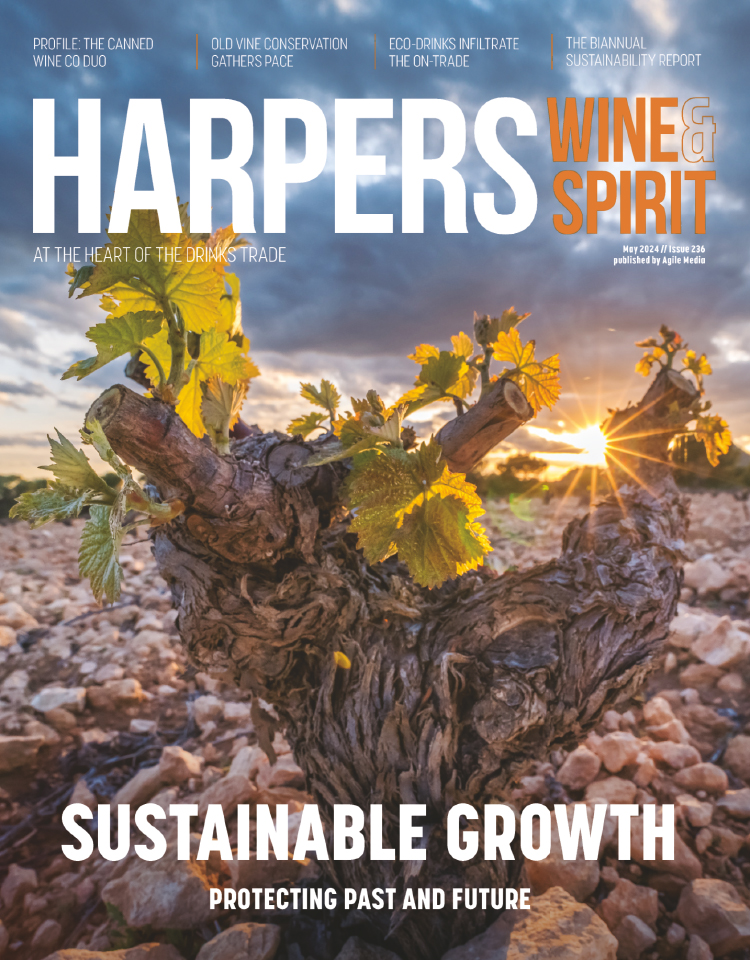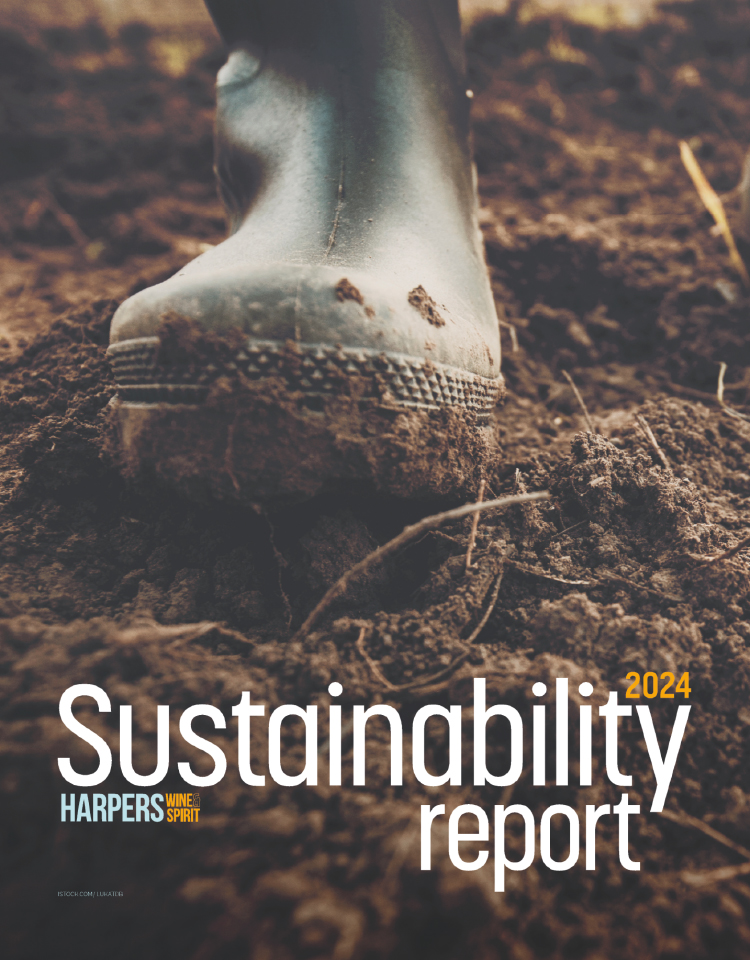Breaking the mould - the first in a new series looking at the opportunities around key grape varieties
In the first of a new series looking at the opportunities around key grape varieties, Carol Emmas focuses on Riesling
In the first of a new series looking at the opportunities around key grape varieties, Carol Emmas focuses on Riesling
Riesling and renaissance are two words that have been bandied together for some time. Search through Google and there are multiple pages debating the topic. But for most part, as gaily as these two words trip off the tongue, placing them together in the real world is like trying to pair two of your closest friends convinced they would get on, only to find they don't gel at all.
Those from the wine trade may love the grape and desire the heavenly marriage to take place, but no matter how positively journalists write, retailers try to sell and sommeliers recommend, our general day-to-day consumers just don't buy it.
I recently took a trip to the Rheinhessen and Pfalz to visit producers and understand the grape from their perspective. Unfortunately, Germany is still stuck with the stigma that has haunted it since the 1980s, when sweet German wines went tumbling out of fashion.
Jan Eymael, second generation at Weingut Pfeffingen in Pfalz, says: "German winemaking has advanced tremendously, but what hasn't is the image. The problem is the UK doesn't associate German wine with high quality and we have to fight against that. Everyone thinks that German whites are sweet, yet 80% of Weingut Pfeffingen wines are good-quality trocken."
Trying to develop a quality and contemporary image has been one of the toughest calls for German producers. Eymael says it's something he is trying to rectify, but it will take a long time. Recognising this problem in 2006 were the German Wine Institute and Wines of Germany, which jointly developed the group Generation Riesling. The aim is to bring together dynamic, ambitious, young German winemakers, under 35 years old, who want to modernise the image of German wines both in the domestic and international markets.
Many German wineries are family run and passed down through several generations. Caroline Diel, winemaker from Keller and Diel and founder of the sub-group Nahe Talent says: "If you go back a generation they were very closed, but the younger generation are much more open and well traveled and have had a lot of international experience to bring to the table, whether that's work in the vineyards, winery, cellar or marketing. In viticulture we are looking more towards our grandfathers than our fathers, who were interested in new machinery. We want to go back to hand-harvesting and older traditions. I spend much more time in the vineyard than my father, he always knew what he wanted and directed rather than had hands-on contact. I like hands-on contact and am prepared to take many more risks."
Obstacles to overcome
Yet although there is much input from these young winemakers, it seems the controls are still tightly run by the older generations, with some reluctant to bring their wines into the 21st century.
Over at Weingut Schick in Weisenheim am Sand, Andrea Schick says it's not easy to try and push her father towards a more contemporary way of thinking. "There have been a few obstacles I've had to overcome. He doesn't like the more modern labelling, the move from sweeter to drier wines, or the screwcap, but he has now embraced Stelvin. He's worried he will lose custom as people have been with him for years. He thinks I'm doing good things, but doesn't understand why we have to change. He still does his own thing and I do mine, and he is due to retire in five years, but he will find it very difficult to go."
One producer who likes things the way they are is ardent lover of Riesling Peter Barry, managing director of Jim Barry Wines. He doesn't want Riesling to take off nor does he think there will be a Riesling renaissance.
"Hopefully not in my lifetime. Hell no, I don't want one. I actually worry about it becoming popular, then everyone will jump on the Riesling bandwagon, commercialise it and sweeten it.
"If it was to boom, we could make more money than everyone else. But we've seen what big companies do, they plant in the wrong areas, and I don't want that."
New World Riesling may be caught up in an off-trade slide, but David Cox, European director of New Zealand Winegrowers, continues to think positively. "Despite the widely held view that New World Riesling is a 'tough sell' in the UK market, I remain very bullish about the opportunities for the outstanding Rieslings that are now being exported from cool-climate New Zealand. Our exports to the UK are up 12% (MAT to June 2010) and 24% globally. While Riesling only represents around 3% of our business, the wines are of growing interest to independent retailers and many on-trade establishments. The True & Daring Riesling from the Sandihurst Winery in Canterbury NZ won the IWC New Zealand Riesling Trophy this year and is an exceptional example of what is being produced now."
Likewise, Lisa McGovern, UK director of Wine Australia, says Australia continues to break down consumer perception. "Australian Riesling has a lovely fresh acidity and that message will continue to be conveyed. Australian Rieslings picked up 14 gold medals out of 65 in the IWC, getting the highest awards for an Australian white wine variety. That's pretty good going and our producers will continue to bang the drum on Riesling's behalf."
Branded approach
Coming from Australia, with it's straightforward labelling message, is Jacob's Creek, which is responsible for 66% of UK off-trade Riesling sales by volume (Nielsen MAT to April 17, 2010). Adrian Atkinson, wine development director for Pernod Ricard UK, believes its success is down to over-delivering on quality at its respective price points. "Our Classic Riesling delivers a dry, true-varietal style that is appealing to people looking to try new wines, but who don't enjoy the sweetness traditionally associated with Riesling. As a brand, we offer consumers the reassurance of quality and consistency, which increases their confidence to experiment with new styles within our portfolio."
Facts
· Germany is the biggest seller when it comes to Riesling in the UK, with Australia in second place and New Zealand and Chile in 3rd and 4th
· But exports are small fry, with only 200,000 bottles coming into the UK market each year
· The bad news is New World off-trade sales are down by 15%, (Nielsen MAT to July 2010)
· Wines of Germany confirms German wine imported into UK continues to decrease by volume and value (although volume is falling faster than value)
· In percentage volume, German wine sales have grown in all wines priced above £4 (Nielsen MAT to June 12, 2010)
· The good news is sales of German wines priced between £9 and £10 have increased by 207%.
The on-trade view
In on-trade agreement with the lower-alcohol plus points is Andrea Bricarello, head sommelier and wine buyer at Galvin La Chapelle and Galvin Café a Vin. He says: "German Riesling always needs a bit of assistance when selling, but there is more space for it than ever before. It suits the light corporate lifestyles. "The New World has also opened the arena considerably. Then people are more willing to move on to other regional examples to sample the great diversity. "Once people feel happy and relaxed about the variety in general, the bad image Germany suffers will disappear."
The buyer's view
In the buying world, Abi Sykes, European buying and merchandising for Europe at Direct Wines thinks it's about the continuing process of education. "It's all about discouraging the German sweet wine myth. Sales of Riesling are definitely on the up for us, but there is still a lot of work to do. "On the plus side a lot of people are up for experimenting with grape varieties. Plus the lower-alcohol German Rieslings offer a massive opportunity. "Labeling laws continue to cause confusion - and cause as much frustration for German producers as they do the customer."
The merchant's view
Confusion about the styles of German Riesling is one thing that can put customers off buying quality wines, as they're not sure what they are getting into. Mark Wrigglesworth, owner of the Good Wine Shop in Twickenham, Surrey, says :"German labelling is a problem even for us in the trade, you have to be up to speed to decipher what's going on - no wonder the general public find it difficult. I'm looking at eight German wines on my shelf and not one indicates the level of sweetness. German Riesling tends to be bought by the better informed, whereas New World wine labelling does what it says on the tin. But part and parcel of our industry is to do some of that educating and we'll direct people towards New World Riesling who are, for instance, bored with Sauvignon Blanc. That gives us a foot in the door and from there, once they've taken a liking to it, we can move them into the Old World."






